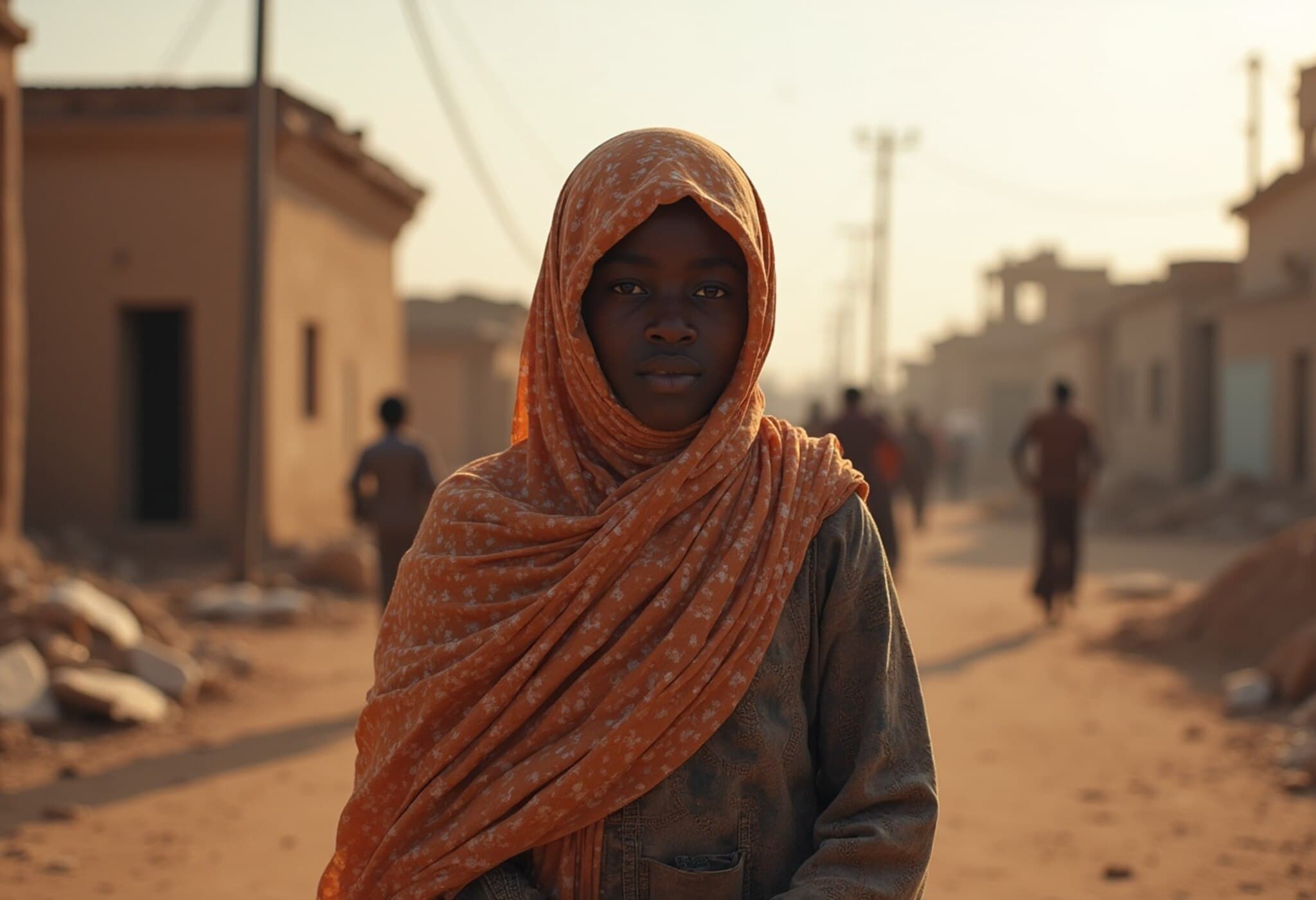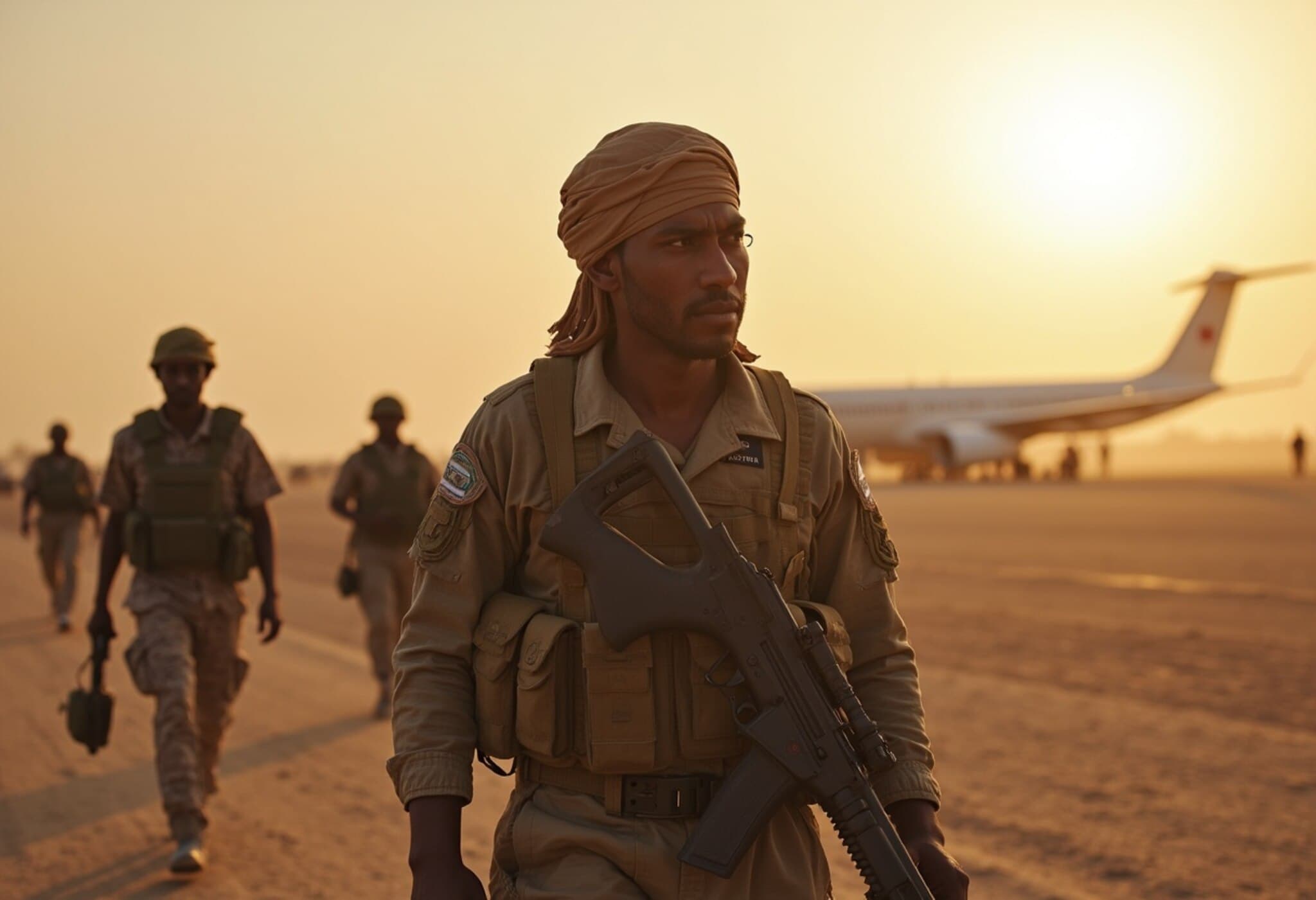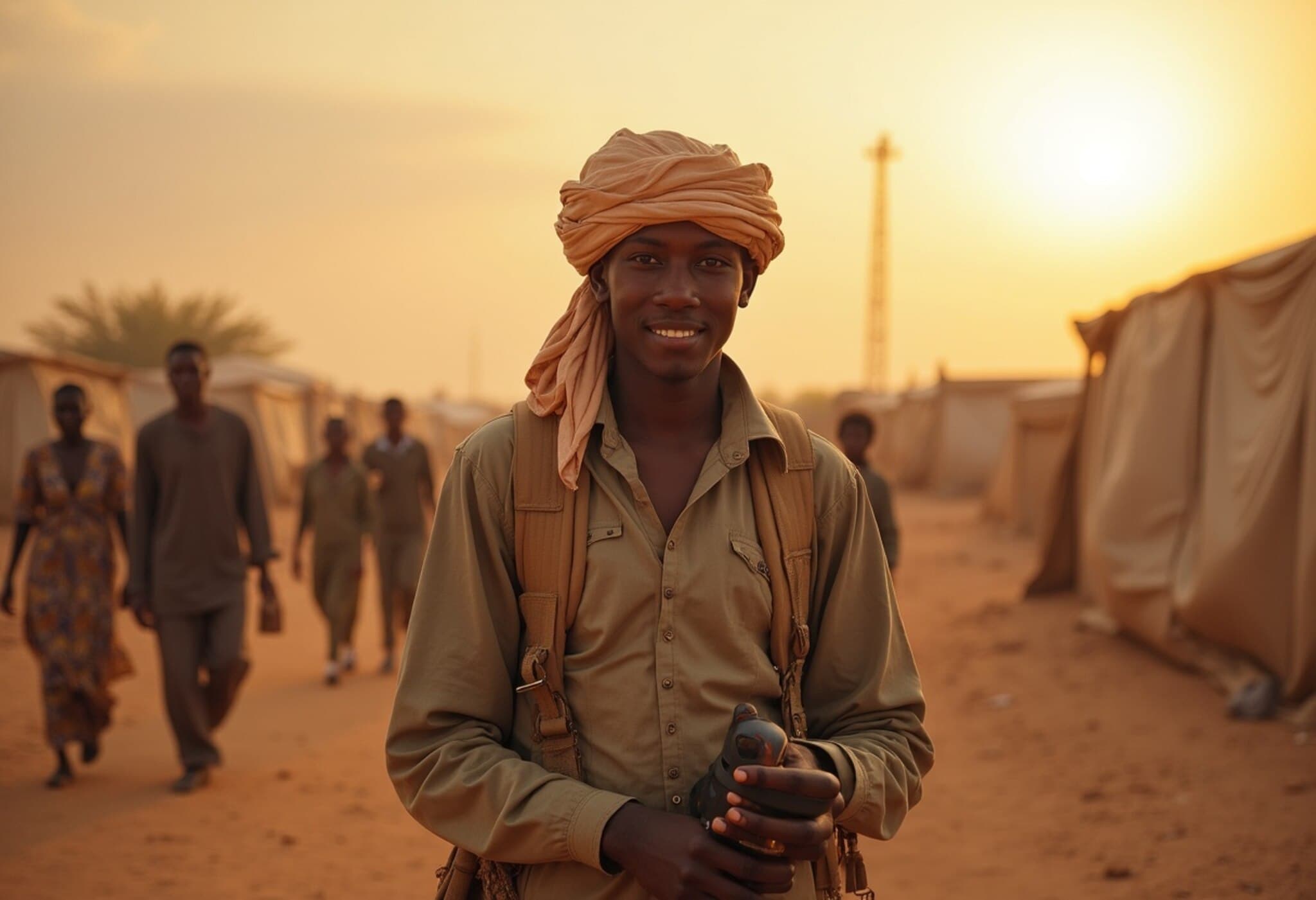Displaced Families Return to War-Torn Khartoum Grappling with Ruins and Scarcity
After more than two years of relentless conflict in Sudan, many displaced families are cautiously returning to Khartoum, the capital city ravaged by fighting between the Sudanese army and the Rapid Support Forces (RSF). Despite the military's recapture of key landmarks earlier this year, the landscape these families face is a stark reminder of the heavy toll the war has exacted—not only in destroyed infrastructure but in shattered lives.
From Displacement to Return: The Human Face of the Conflict
Afaf al-Tayeb’s story is emblematic of the anguish suffered by thousands. Her home in Khartoum’s Al-Qawz district no longer stands as a sanctuary but as a charred skeleton, devoid of windows and memories, including photographs of her late husband and parents lost in a March fire. Despite this, she returned in June, driven by an enduring hope and a longing for normalcy.
“We moved at least four times within these years, fleeing violence, losing everything repeatedly,” she shared. Afaf and her son, Mohamed al-Khedr, had to leave their home multiple times—first to Gezira province’s Hilaliya area, then fleeing RSF advances to East Khartoum, Shendi, and finally Om Durman city. The bitter pattern of displacement paints a vivid picture of a civilian population caught in crossfire.
The Scale of the Humanitarian Crisis
- 12 million people forcibly displaced since April 2023 according to the UN refugee agency
- 3.2 million Sudanese refugees have fled to neighboring countries
- Over 40,000 deaths reported due to conflict
- Widespread famine risks and disease outbreaks exacerbating the crisis
Khartoum, once the epicenter of fierce urban warfare, was retaken by government forces this year. However, the victory is pyrrhic; much of the city’s infrastructure has been dismantled or looted.
Devastated Infrastructure and the Struggle to Rebuild
Mohanad Elbalal, co-founder of Khartoum Aid Kitchen, paints a grim picture: "People are coming back to rubble—homes reduced to ruins, neighborhoods without electricity, water, or basic services. Still, the spirit to rebuild is palpable.”
Khartoum’s power network is in tatters. Over 77 power transfer stations across the province have been destroyed or looted, alongside generators vital for electricity supply. Hospitals, once bastions of hope, have been stripped of beds and mattresses. The Armed Conflict Location and Event Data Project has confirmed that 16 water and electricity facilities serving Khartoum have sustained partial or total damage.
Officials, including Khartoum province spokesperson Altyeb Saad, emphasize ongoing repair efforts focused initially on clearing corpses, unexploded ordnance, and debris to prevent disease. The reconstruction of basic services like electricity, water pumps, and solar panel installations is underway, with power expected to return soon in some districts.
Financial and Political Barriers to Rebuilding
Experts warn the road ahead is fraught. Kholood Khair, founding director of Confluence Advisory, highlights a grim reality: “The ongoing conflict means Khartoum remains vulnerable to renewed attacks, dissuading international donors who struggle to identify a trusted and legitimate government partner for aid.”
Estimated costs for rebuilding stretch into the billions, a staggering sum for a nation wrestling with instability. This raises thorny questions about sustainable reconstruction and the international community's role.
Daily Life Amid Scarcity and Uncertainty
Residents like Afaf and her neighbor Nasser al-Assad endure a daily struggle. Nasser has been displaced five times and found his home partially destroyed by shelling upon return.
With no access to electricity or safe water, many households rely on expensive bottled water and improvised solar panels. Local communities have banded together to reconnect electricity and tap wells, efforts born out of sheer necessity amid state incapacity.
Volunteer clean-up initiatives are sprouting, with young men sweeping ash and debris from their neighborhoods to reclaim some semblance of normal life.
The Broader Socioeconomic Implications
Elbalal notes that the absence of essential services has devastating socioeconomic consequences. Without stable infrastructure, job opportunities remain scarce, leaving many reliant on charity kitchens for sustenance. Though the demand has lessened somewhat, thousands continue to depend on them daily.
The vacuum of law and order has also fostered insecurity, with reports of robbery, ethnic profiling, and illegal home occupations rising. Khair warns, “Without restoring governance and civil order, Khartoum risks becoming fertile ground for organized crime.”
Looking Ahead: Challenges and Opportunities
Khartoum’s returnees embody a resilient spirit amid hardship. Their stories emphasize the urgent need for comprehensive support—not just military or political solutions, but robust investment in humanitarian relief, infrastructure rehabilitation, and restoration of rule of law.
For the United States and international policymakers, Sudan’s capital presents a complex test of balancing stabilization efforts, humanitarian aid, and strategic diplomacy in a region at the crossroads of geopolitics and human tragedy.
Key Questions Moving Forward
- How can international donors effectively support reconstruction amidst ongoing conflict?
- What role can local communities play in rebuilding while lacking state capacity?
- How can humanitarian agencies scale assistance to meet both urgent needs and long-term development?
- What mechanisms are needed to restore security and protect returnees from exploitation?
Editor’s Note:
The return of displaced families to Khartoum is a testament to human resilience in face of devastating conflict. However, beneath the surface lies a fragile reality: a city struggling to recover amidst ruins, scarcity, and uncertainty. This calls for a nuanced approach from policymakers, humanitarian actors, and the global community. Beyond immediate relief, sustainable support must knit together reconstruction, governance, and security reforms to prevent relapse into chaos. As Khartoum seeks to rise from the ashes, the world watches—and must act with empathy and resolve.













